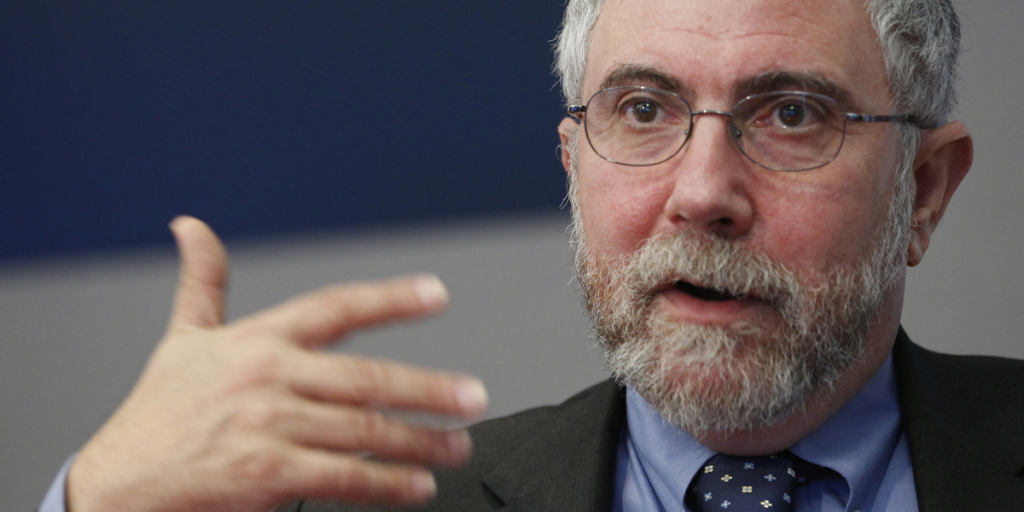- Economist Paul Krugman compared the cryptocurrency boom to the mid-2000s housing bubble.
- Crypto has become so valuable and popular that people wrongly assume it's worth something, he said.
- The Nobel laureate warned investors have "gone from the Big Short to the Big Scam."
Paul Krugman compared the cryptocurrency craze to the mid-2000s housing bubble in a recent New York Times column. He warned the hype around digital coins resembled people's unwavering faith in the US housing market before it tanked, sparking a global financial crisis.
Only a handful of investors — including Michael Burry of "The Big Short" fame and John Paulson — recognized that house prices had surged to unsustainable heights, and had the audacity and conviction to bet against ostensibly safe, mortgage-backed securities.
Krugman, who won the Nobel Prize for economics in 2008, attributed the mass delusion affecting almost everyone else to the "incredulity factor." Americans just couldn't believe that house prices were as inflated as naysayers claimed, or comprehend that trillions of dollars of real-estate value might be eradicated, he said.
"It just didn't seem plausible that markets, and the conventional wisdom saying that markets were OK, could be that wrong," the economics professor and columnist wrote.
Krugman asserted it's a similar story in the crypto market, which was valued at nearly $3 trillion at its peak in November. He pointed out the lack of practical uses for bitcoin, questioned how tokens are superior to conventional means of payment, and underlined crypto's popularity among fraudsters and money launderers.
The Nobel laureate noted that, just like during the housing boom, it seems ridiculous to question an asset class that has become so valuable and attracted so many influential promoters. It sounds absurd to suggest crypto is "a house built not on sand, but on nothing at all," he continued.
Yet Krugman's assessment is precisely that. "If you ask me, it looks as if we've gone from the Big Short to the Big Scam," he said.

